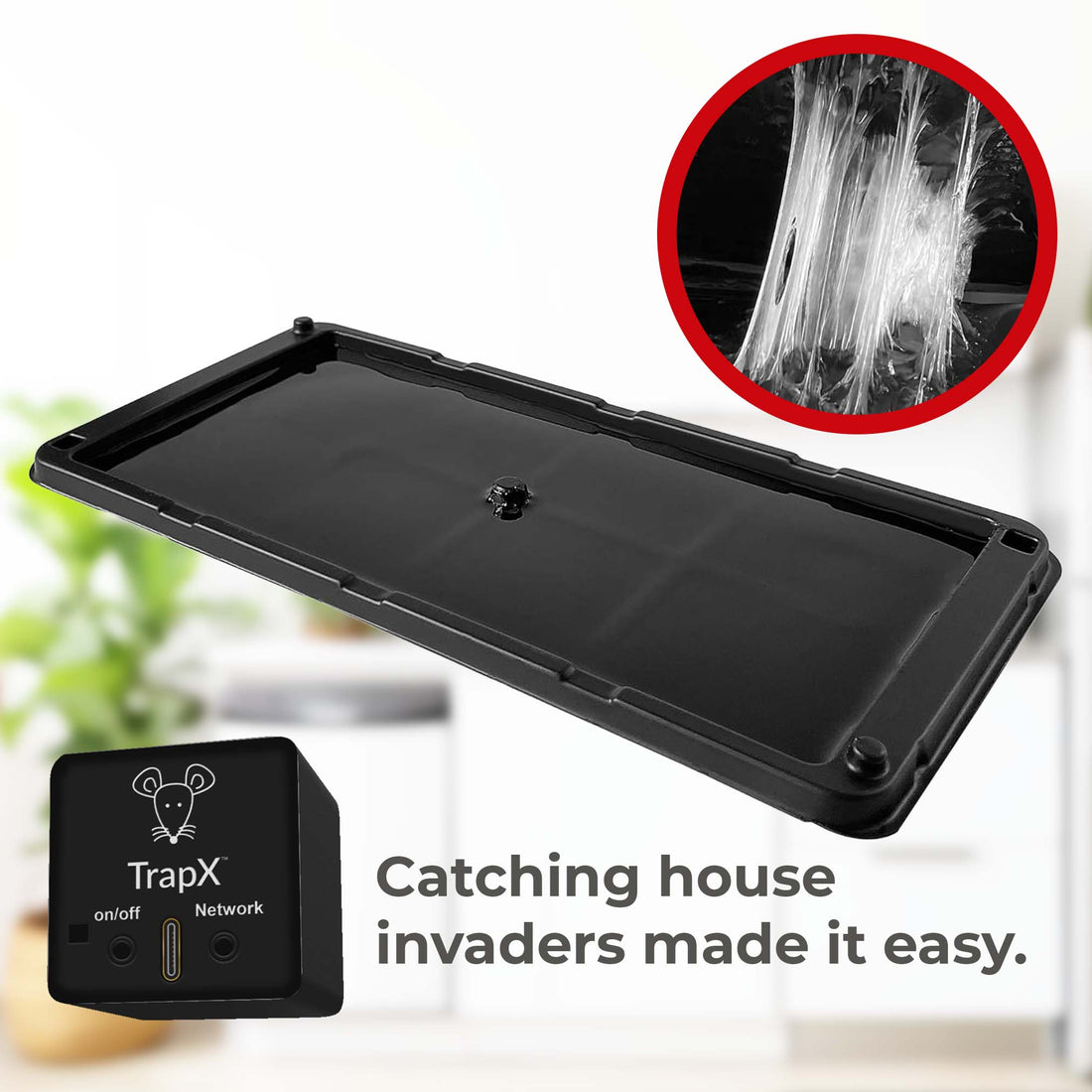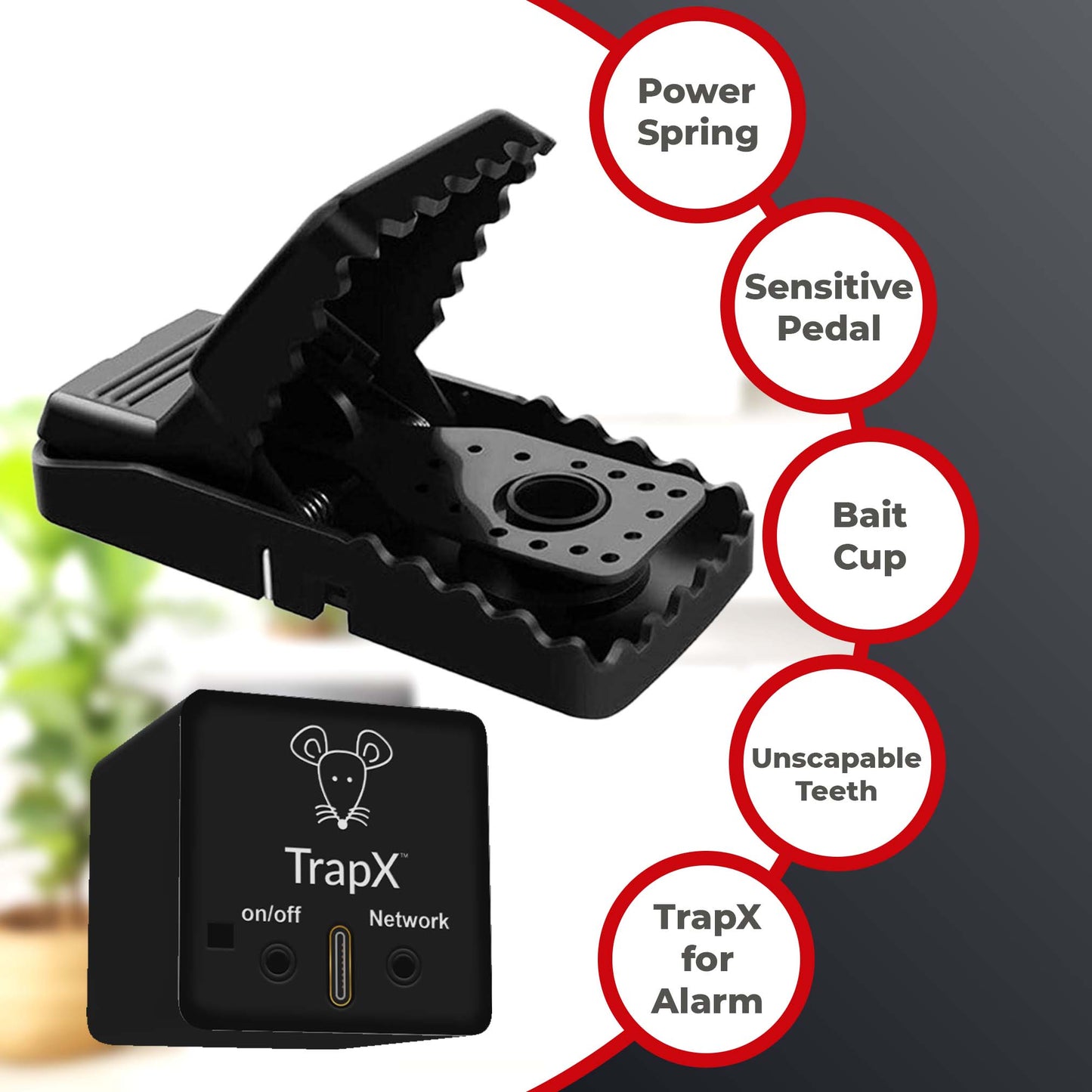The Ultimate Guide to Indoor Rat Killers: How to Get Rid of Rats in Your Home
Share
Are you dealing with a rat infestation in your home? Are you tired of hearing those pesky rodents scurrying around in your walls and attic? If so, you're not alone. Rat infestations are a common problem that many homeowners face, but the good news is that there are effective solutions available. In this comprehensive guide, we will explore the world of indoor rat killers and provide you with all the information you need to successfully eliminate rats from your home.

The Dangers of Rat Infestations
Before we dive into the topic of indoor rat killers, let's first understand why it's important to get rid of rats in your home. Rats are not just a nuisance, they can also pose serious health risks. These rodents carry diseases and parasites that can be transmitted to humans, including salmonella, hantavirus, and fleas. In addition, rats can cause damage to your property by chewing through wires, insulation, and even structural materials. Therefore, it's crucial to take immediate action if you suspect a rat infestation in your home.

Identifying a Rat Infestation
The first step in dealing with a rat infestation is to identify whether or not you actually have rats in your home. Here are some signs to look out for:
- Scratching noises in the walls or attic
- Droppings or urine stains
- Gnaw marks on furniture or wires
- Nests made of shredded materials
- Unpleasant odors
If you notice any of these signs, it's likely that you have rats in your home and it's time to take action.

Choosing the Right Indoor Rat Killer
When it comes to getting rid of rats in your home, there are several options available. Let's take a look at some of the most common indoor rat killers:
1. Rat Poison
Rat poison is a popular choice for many homeowners because it's easy to use and can be highly effective. There are different types of rat poisons available, including anticoagulant baits and acute toxic baits. Anticoagulant baits work by thinning the rat's blood, causing them to bleed internally and eventually die. Acute toxic baits, on the other hand, deliver a lethal dose of poison to the rat, causing immediate death. It's important to follow the instructions carefully when using rat poison to ensure the safety of your family and pets.
2. Rat Traps
Rat traps are another popular option for indoor rat control. There are different types of rat traps available, including snap traps, glue traps, and electronic traps. Snap traps are the most traditional and commonly used type of rat trap. They work by snapping shut when the rat triggers the trap, capturing and killing the rodent. Glue traps are sticky boards that trap the rat when it walks over them. Electronic traps are more advanced and use an electric shock to kill the rat instantly. When using rat traps, it's important to place them in areas where rats are likely to travel, such as along walls and near food sources.
3. Ultrasonic Repellents
Ultrasonic repellents are devices that emit high-frequency sound waves that are unpleasant to rats. These devices are designed to deter rats from entering your home or specific areas within your home. While ultrasonic repellents can be effective in some cases, they may not work for all rat infestations. It's important to note that ultrasonic repellents should not be used as the sole method of rat control, but rather as a supplemental measure.
Implementing Rat Control Measures
Once you have chosen the right indoor rat killer for your situation, it's time to implement rat control measures in your home. Here are some steps you can take:
- Seal off entry points: Rats can squeeze through small openings, so it's important to seal off any cracks, gaps, or holes in your home's exterior.
- Remove food sources: Rats are attracted to food, so make sure to store food in sealed containers and clean up any spills or crumbs.
- Keep your home clean: Regularly clean your home, including your kitchen and pantry, to remove any potential food sources for rats.
- Set up traps or bait stations: Place rat traps or bait stations in areas where rats are likely to travel, such as along walls or near entry points.
- Monitor and dispose of dead rats: Check your traps or bait stations regularly and dispose of any dead rats properly.
Conclusion
Dealing with a rat infestation in your home can be a frustrating and stressful experience. However, by choosing the right indoor rat killer and implementing effective rat control measures, you can successfully eliminate rats from your home. Remember to always follow the instructions carefully when using rat killers and take necessary precautions to ensure the safety of your family and pets. If you're unsure about how to deal with a rat infestation, it's always best to consult with a professional pest control company for expert advice and assistance.
Jan02.chat.1pass.general public.rat killer indoorAs an Amazon Associate, I earn from qualifying purchases.
